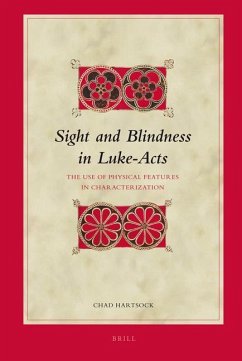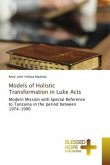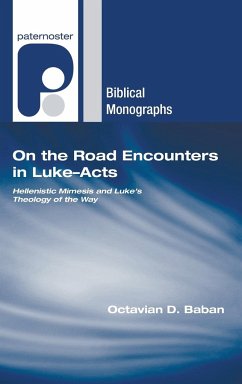The ancient world often thought in terms of physiognomicsa "the idea that character can be discerned by studying outward, physical features. That physical descriptions carry moral freight in characterization has been largely missed in modern biblical scholarship, and this study brings that to the forefront. Specifically, this is a study of one particular physical markera "blindness. When we look at Greco-Roman literature, a kind of literary topos begins to emerge, a set of assumptions that ancient audiences would typically make when encountering blind characters. Luke-Acts makes use of such a topos in a way that becomes programmatic, serving as a kind of interpretive key to Luke-Acts that is generally unnoticed in modern scholarship.








